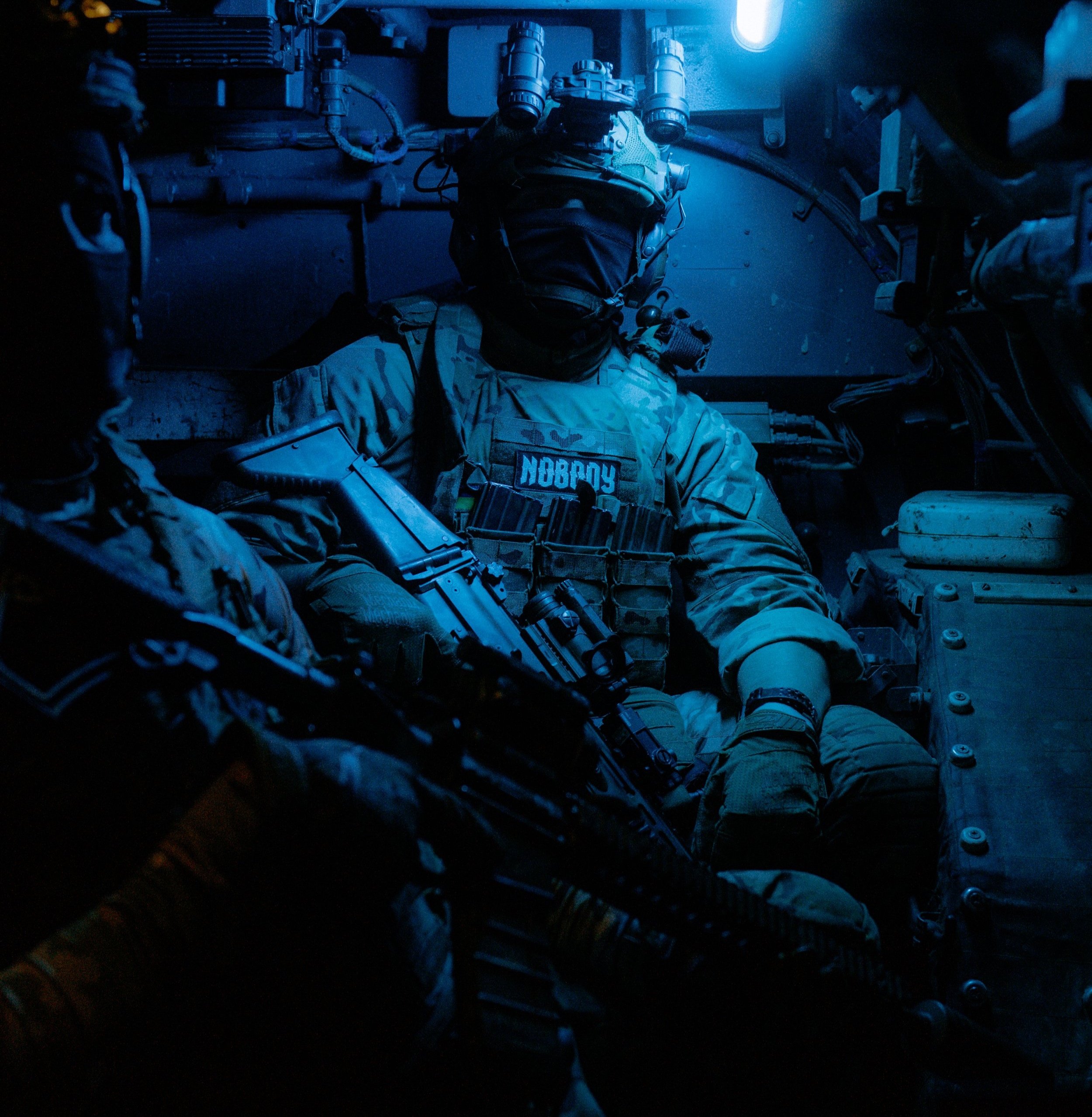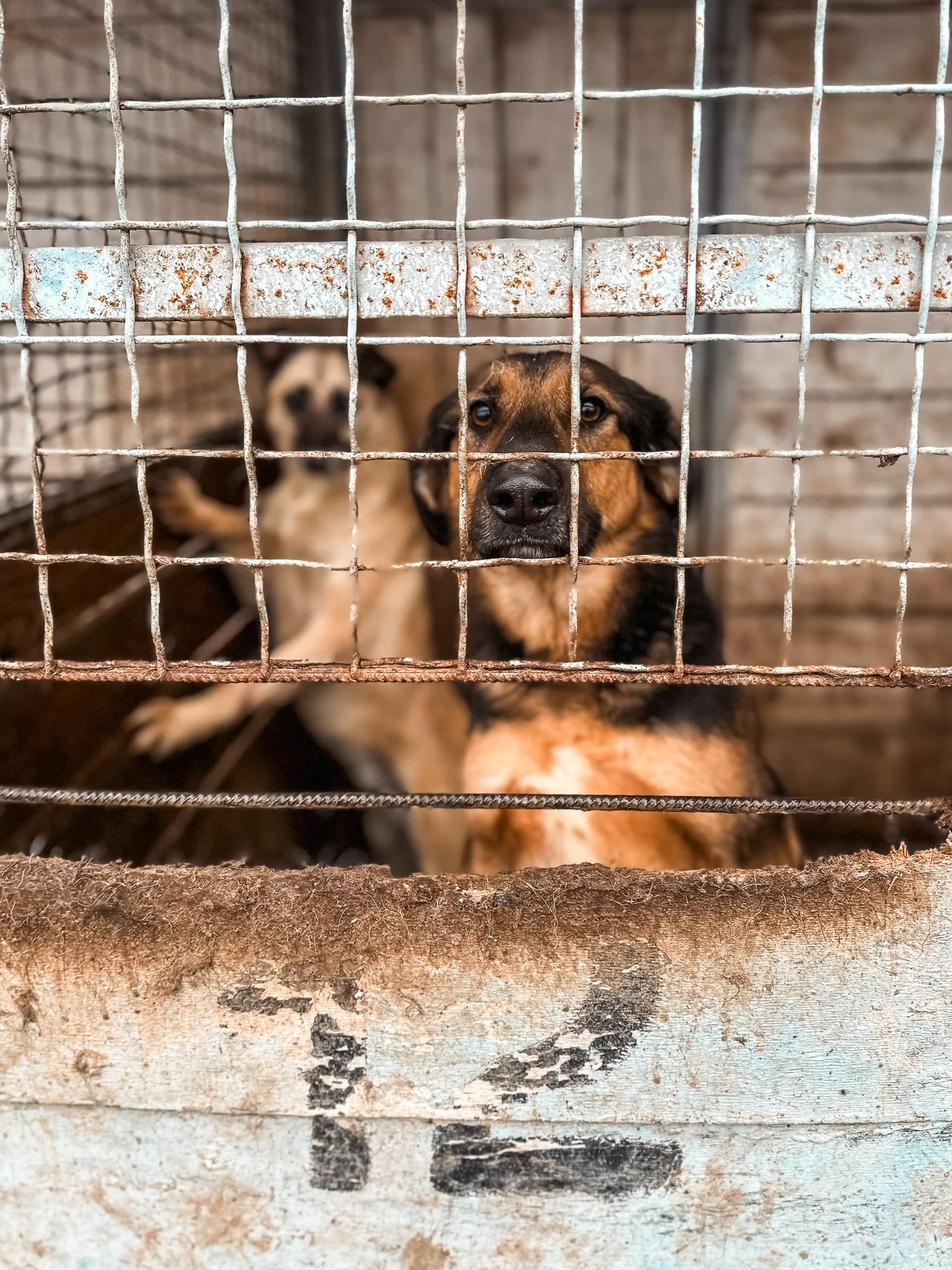
Giving two lives a better future
We give rescue dogs a new chance at life, helping give those who served our country a second chance at theirs.

Service animals for those who served their country.
We provide trained Service Dogs to military Veterans suffering from PTSD and other service-related trauma. The vast majority of our dogs are rescues, allowing veterans and their canine companions to build a deep and unshakable bond that facilitates their collective healing and recovery.

Veterans Issues
As of January 2025, more than 980,000 Ukrainians have taken up arms to defend their country.
More than 380,000 soldiers have been wounded, and more than 50,000 have lost limbs.
It’s estimated that 1.8 million of Ukraine’s military personnel and veterans will require psychological support.
Overlooked victims of Russia’s War
Ukraine's stray dog population has exploded since Russia's invasion, with numbers now approaching a million or more.
Many of these dogs were pets who’ve lost their homes, owners, and everything they’ve ever known. Often they’re in front-line villages, and are saved by rescuers at incredible risk to themselves.
They deserve a second chance at life, and for those with the right temperament, they can be of incredible service to those injured defending the country.

Areas of impact.
-
Service dogs make amazing PTSD companions by spotting your stress and helping refocus positively. These helpful pups can:
Provide comforting pressure when you're anxious
Create space in crowds
Alert you to people behind you
Break social ice with friendly greetings
Gently wake you from nightmares
They recognize your stress signals, keeping you present.
-
A service dog boosts independence by:
Retrieving dropped items or out-of-reach objects
Providing balance support while walking
Opening doors and drawers with pull straps
Operating light switches with nose or paws
Carrying items in vest pockets
Helping with dressing by tugging clothes
These partners respond to your specific needs, making daily activities easier and increasing your confidence.
-
A service dog transforms life for those with vision or hearing challenges by:
Guiding around obstacles and finding exits or elevators
Alerting to doorbells, alarms, and someone calling your name
Warning of approaching vehicles you can't see or hear
Finding dropped or hard-to-locate items
Creating awareness of people moving nearby
These partners become your eyes or ears, maintaining your independence in all situations.

Canistherapy
Rescues helping rescue.
Dogs have been helping people heal for centuries - and even the mother of modern nursing, Florence Nightingale, noticed that small pets brought comfort and healing to hospital patients.
Today, we call this Canistherapy, and it's making a real difference for veterans dealing with both physical and emotional challenges from war. These special dogs don't just provide companionship - they're trained to help reduce PTSD and ease a variety of physical challenges common to veterans.
It’s an approach widely researched for decades, and the results have been consistently promising. In a 2023 study, 97% of respondents with service dogs reported increased community participation, 97% reported quality of life benefits, and 98% noted a beneficial impact on psychological wellbeing.
We’ve launched a pilot program near Lviv to make those outcomes accessible here; helping rescue dogs who need homes and training them as service animals. It's a beautiful partnership - veterans find new purpose with their canine friends, while rescue dogs get a second chance through meaningful service.
